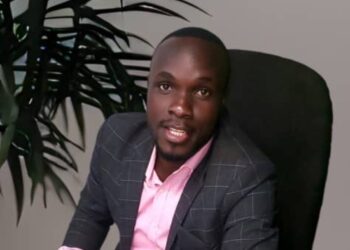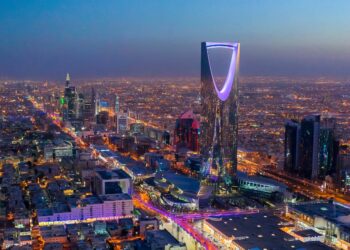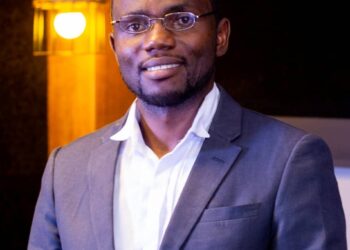By Ofwono Opondo
It is a year since the ever-upbeat DP president, Norbert Mao, launched “DP re-union” and forming the ‘Bloc’’ in Masaka, hoping to resurrect the lost fortunes of Uganda’s oldest political party founded in 1964, based on dejection, religious and tribal sectarianism.
That re-union was, partly to lure back estranged tribalists from Buganda like Erias Lukwago, Mathias Mpuuga, Betty Nambooze, Muwanga Kivumbi, Samuel Lubega Mukaku, Sebuliba Mutumba, and Lulume Bayiga. It also targeted those long gone who registered their own political parties like Abed Bwanika and Michael Mabikke.
It’s sad seeing the DP hangmen coming for Mao’s head, although he still pretends that all is fine.
Mao’s efforts were further aimed at bringing Mugisha Muntu and Robert Kyagulanyi’s ANT and ‘people power’’ respectively into early ‘fold’ in preparation for an opposition grand coalition where Mao could play kingmaker, or indeed be crowned king.
If the ’Bloc’ failed, Mao, believed, that he could redirect the winds off Muntu and Bobi Wine sails. Within DP, Mao had calculated that his alliances would help him fight off internal wars to secure leadership and its flag for presidential candidate. This explains why the tribalists have shunned his olive branch, treating it as calculated mischief.
On the surface, the reunion and bloc, appeared genuine, but many analysts warned that his stratagem was like a rope supporting a hanging man. The rubble-rouser mercenaries he recruited including Lulume, Lubega, Bwanika, and Mabikke have failed to undercut Muntu and Kyagulanyi, and are now watching helplessly, DP’s sustained tribal civil war of attrition against Mao. Standing in the soggy political swamp, they cannot directly and effectively confront FDC, however browbeaten the later appears to be.
Mao who assumed the DP leadership in 2010, wading through controversies, some self-inflicted, prefers political grandiose than viable strategy, plans, and comes off a man seeking public attention even where it doesn’t give DP any dividends to DP. Mao is idealistic, but unrealistic.
During these ten years, many DP leaders in Buganda have been at loggerheads with Mao over numerous issues including alleged breach of the party constitution and rules, dictatorial tendencies, and lack of coherent policy and financial accountability. Contrary to an earlier signed undertaking, the DP parliamentary caucus has withheld its monthly contribution of 250,000 per MP every month to the party coffers. In addition, the Buganda group, doesn’t participate in DP activities initiated by Mao.
Nevertheless, while many castigate Mao, it is important to know that since his ascendency to DP presidency, its electoral performance slightly improved where sixteen MPs got elected in 2016, and most of them are vibrant. In a long time, DP got two MPs from the north in Gulu and Omoro districts.
The main accusation is of refusing to hold elections to replace party Secretary General, Treasurer, and Women leader who died over three years ago, and National Chairman who joined government as Deputy Ambassador. These concerns reflect longstanding frustrations of grassroot party members, stretching back decades, claiming that their views carry little weight in DP, despite support, contribution and practical experience.
Yet to-date Mao refuses to hold election to fill those posts perhaps fearing that his sidekicks currently occupying them will be defeated. His veneer of strength, stable, democrat, and a small-inflated ego is evaporating, leaving him the laugh line he is today. Many people see Mao’s boasts, to match one DP to every NRM candidate in 2021, as unrealistic for a cadaverous party.
The ongoing wrangles, mirror DP’s checkered history from inception, where its founder Joseph Kasolo, was replaced in a power struggle by Benedicto Kiwanuka, who in turn was fought and denied leading Uganda to independence by the Buganda monarchy viewing him as challenging the supremacy of the Kabaka.
In 1980, as parties jostled for the general elections, Old Paulo Kawanga Ssemogerere had to outmaneuver, using Paulo Muwanga, to stop Prof. Yusuf Lule from returning to Uganda from Tanzania, saying DP already had a presidential candidate. However, the real reason was that Lule, a former Muslim, turned Anglican, was seen as too close to the Mengo establishment. Lule could not be allowed to lead DP into elections because his political rhetoric favoured returning the monarchy.
After those elections, Ssemogerere faced challenges leading to the eventual breakaway by the Acholi under Tiberio Okeny Atwoma who formed the Liberal Party. Okeny variously claimed that the Acholi had a stronghold within the UNLA to protect a Catholic leaning government, hence the July 1985 coup.
Mao is finding it difficult to persuade the majority to support his political roadmap away from elections which he knows DP and the general opposition cannot easily win at the next polls. After sixty-five years wondering aimlessly, many DP members want blood spilled, and don’t seem bothered as to whose blood it is to get the poisoned chalice.
Having failed in that bid, both as candidate and kingmaker, pundits are wondering just how long, Mao stays the unhelpful placeholder, if not an active impediment to DP’s progress. It’s evident, though, that most in DP and opposition, actually hold him more in contempt than confidence.
Do you have a story in your community or an opinion to share with us: Email us at editorial@watchdoguganda.com











